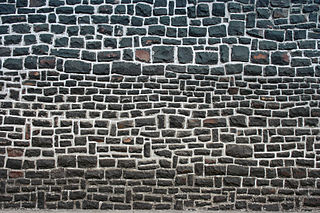See also
- Ligeti Ridge, an undersea ridge in the Southern Ocean
- Liget
- Ted Ligety
Ligeti is a Hungarian surname. Notable persons with the surname include:

György Sándor Ligeti was a Hungarian-Austrian composer of contemporary classical music. He has been described as "one of the most important avant-garde composers in the latter half of the twentieth century" and "one of the most innovative and influential among progressive figures of his time".
Sarkozy is a Hungarian surname. It is a toponymic surname, and means "from Sárköz". Notable people with the surname include:
Vajda is a Hungarian language surname. It is derived from Proto-Slavic *vojevoda. In medieval times, vajda was the equivalent of voivode, meaning a "war-leader" or "war-lord". The name may refer to:
György is a Hungarian version of the name George. Some notable people with this given name:
Justus is a surname. Notable people with the surname include:
Magány, sometimes translated into English as Solitude or Loneliness, is an early vocal composition by Hungarian composer György Ligeti to a text by Sándor Weöres. It was finished in 1946 and, as most of Ligeti's early compositions, has followed the musical style of Béla Bartók.
Éjszaka and Reggel, sometimes also referred to as Éjszaka és reggel or Ejszaka, Reggel, are twin vocal compositions by Hungarian-Austrian composer György Ligeti. They were published as a set and are usually performed and recorded together.

Mátraszentimrei dalok is a collection of songs after Hungarian folk tunes by Hungarian composer György Ligeti. They are strongly influenced by fellow composer Béla Bartók, who also used Hungarian folk songs as his basis for some of his compositions.

Three Bagatelles, for David Tudor, better known by its original French title Trois bagatelles, is a 1961 solo piano composition by Hungarian composer György Ligeti. The composition is well known for its tacet sections.
Invention is an early composition by Hungarian composer György Ligeti. It is scored for solo piano and was composed in 1948.
Pápainé is an early vocal composition by Hungarian composer György Ligeti. It is based on a text by Hungarian poet Sándor Weöres and reflects Bartók's influence on Ligeti.
Bujdosó, commonly known in English as The Fugitive or Song of Exile, is an early vocal composition by Hungarian composer György Ligeti. It was finished in 1946 and is strongly influenced by Béla Bartók.
Kállai kettős, also referred to in English as Double-Dance from Kálló, Kálló Two-Step, Two Folksongs, or its French form Kálló's pas de deux, is an early vocal composition by Hungarian composer György Ligeti. It was composed in 1950 and is one of Ligeti's collections of Hungarian pieces which the composer himself conceived as a whole.
Lakodalmas, commonly translated into English as Wedding Dance, is an early vocal composition by Hungarian composer György Ligeti. It was completed in 1950, before he finished his musical studies.
Pletykázó asszonyok, sometimes translated into English as Gossipping Women, Gossip, and The Gossips, is one of the two early canons for choir by Hungarian composer György Ligeti. It was completed in 1952 and was later published as part of the collection Két kánon.
Haj, ifjuság!, also referred to in English as Oh, Youth!, Hey, Youth!, and simply Youth!, is an early vocal composition by Hungarian composer György Ligeti. It was finished in 1952 and published in 1999.
György Ligeti is a Hungarian indie musician, record producer, best known as the lead singer, songwriter, lyricist and guitarist of the indie rock band We Are Rockstars, and the disbanded The Puzzle. He is also the singer and guitarist of the Hungarian electro band, Žagar. He is not related to the avant-garde classical composer of the same name, György Ligeti (1923-2006).
Fejér is a Hungarian-language surname. It may refer to:
Szabados is a Hungarian surname. Notable people with this surname include:
Kosa, Kósa, or Kóša are surnames with multiple origins. Notable people with the surname include: